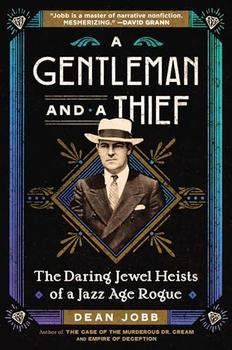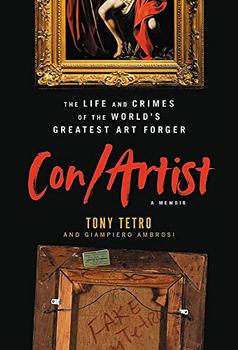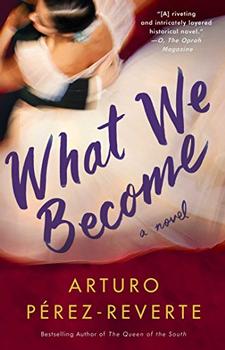Summary | Excerpt | Reading Guide | Reviews | Beyond the book | Read-Alikes | Genres & Themes | Author Bio

The Daring Jewel Heists of a Jazz Age Rogue
by Dean JobbIn the Roaring Twenties—an era known for its flash and glamour as well as its gangsters and bootleggers—Arthur Barry used a combination of charm, cool-headedness, and shrewd observational skills to become one of America's most infamous jewel thieves. In A Gentleman and a Thief, Dean Jobb shares the stranger-than-fiction story of a young boy from Massachusetts who became a master cat burglar, took an English monarch on a tour of NYC, stole millions of dollars in jewels, and gave it all up for love.
If not for the extensive documentation and the note to readers that opens the book, Gentleman would seem like a work of fiction. Barry's life began ordinarily—born into a large, working-class Irish family in 1896—but by the age of fourteen, he had committed enough minor offenses that the local police considered him "a pretty bad boy." Barry had also by that time become a courier for Lowell Jack, a retired safecracker who had turned to making nitroglycerin. The image of a teenager carrying explosives in a briefcase aboard a packed train sounds both fabricated and absurd, but young Barry's early exploits with Jack were not only real, they kickstarted his own life in crime. Using what would become his trademark method of observation, patience, and an unlocked window, Barry snuck into a home while the occupants were sleeping and stole about $100—his first job as a second story man, a burglar who specializes in entering through an upper-story window.
In addition to introducing him to the world of crime, Jack also encouraged Barry to be polite and gentlemanly, advice Barry would take to heart. Barry's charm set him apart from other Jazz Age criminals, granting him an almost mythical quality. Jobb shares the famous story of Barry, having sneaked into an elite New York party, taking Edward, the Prince of Wales (later, King Edward VIII), on a grand tour of Manhattan. No one suspected that the charming, eloquent, and sharply dressed "Dr. Gibson" had crashed the party, lied about his name, and used the opportunity to case the house. Jobb emphasizes Barry's simple yet effective technique of patience; at a time when everyone else was looking for instant gratification, his careful approach allowed him to get away with many high-profile thefts. An afterword lists Barry's major heists, showing the incredible amounts of wealth he was able to steal; it's also likely that he committed even more thefts than he ever admitted.
Barry did have a conscience to accompany his charm. He claimed that he only robbed from the rich, believing that if a woman could wear a $750,000 necklace, she didn't need to worry whether she'd be able to eat. To some, this made Barry a Robin Hood–like figure, even though he kept the money for himself. On rare occasions, he did show some selflessness. In 1925, after discovering his victim had been an Army surgeon in France during the Great War, Barry mailed back $15,000 in jewels, likely due to their shared service for their country (Barry had served as a private in the medical corps in France). During another major heist—in which he was caught in the act—Barry returned two small pinky rings to a socialite when she politely requested them back, claiming sentimental value. Such instances solidified his mystique as the epitome of a gentleman thief.
Adding to the strange fairytale qualities of Barry's story, his downfall was due to love. Barry and his wife, Anna Blake, had a loving and devoted marriage, and when Barry was caught, Blake was the one literally holding the stolen jewels. Barry confessed his crimes to ensure that Blake wasn't charged, and he later broke out of prison to be with her when she was diagnosed with cancer. Likewise, Blake stood by Barry's side throughout his time in prison. The two frequently exchanged letters that showed the depth of their love and loyalty to each other, and even on her deathbed, Blake never gave police any information about the whereabouts of Barry's unrecovered jewels.
To set the stage for Barry's crimes, Jobb includes a wealth of information about the culture of the 1920s. NYC's role in the diamond industry, in particular, emphasizes the extravagance of the decade, which provided jewel thieves like Barry a wide range of victims from whom to choose. Jobb also incorporates background about the various investigators who worked to capture Barry and looks at the role of the media, particularly newspapers, in the sensationalism of crime and how false headlines and unfounded tips made criminal investigations harder to solve. Furthermore, he provides an interesting commentary on the prison system during the 1920s, which changed from an emphasis on punishment to rehabilitation over the course of Barry's several incarcerations. Although many law-abiding citizens complained about the "convicts paradise" in which Barry and others were living, Barry was truly reformed by the updated system and came to regret his crimes. After his release, he gave an interview to Life magazine and even appeared on The Tonight Show with Johnny Carson to speak about his crimes and how they kept him from living an honest life with the woman he loved.
Although it may seem fantastical, Jobb's latest true crime biography is indeed true—and just plain fantastic. Arthur Barry's exploits will appeal not only to fans of true crime and the Roaring Twenties but to anyone who loves a clever, elaborate heist and the debonair criminal who can pull it off.
![]() This review
first ran in the July 17, 2024
issue of BookBrowse Recommends.
This review
first ran in the July 17, 2024
issue of BookBrowse Recommends.

If you liked A Gentleman and a Thief, try these:

by Tony Tetro, Giampiero Ambrosi
Published 2022
The world's most renowned art forger reveals the secrets behind his decades of painting like the masters - exposing an art world that is far more corrupt than we ever knew while providing an art history lesson wrapped in sex, drugs, and Caravaggio.

by Arturo Perez-Reverte
Published 2017
An epic historical tale following the dangerous and passionate love affair between a beautiful high society woman and an elegant thief. A story of romance, adventure, and espionage.
Your guide toexceptional books
BookBrowse seeks out and recommends the best in contemporary fiction and nonfiction—books that not only engage and entertain but also deepen our understanding of ourselves and the world around us.